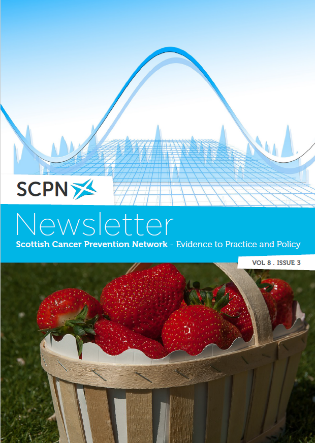
Reducing obesity from childhood to later life

19 Aug 17 |
Feauted Image © World Obesity
A Note from the Editor
Ageing is associated with an increased cancer risk. Around 60% of people who have cancer are 65 or older. So are 60% of cancer survivors. But the origins of many diseases start in early life, especially in relation to nutrition and growth rates in infancy and childhood. A poor lifestyle in childhood does not mean that lifestyle in adulthood is too late to reduce risk of cancer (or heart disease) but rather that it does present another opportunity to stack the odds against cancer occurrence. So for the sake of our children and grandchildren optimising nutrition, physical activity and avoiding excess weight is the best start in life for many healthy years ahead. The factors that influence childhood obesity also influence adult obesity so any policy action that can impact on people across the lifespan stands to achieve most health gain.
Anna Gryka, Obesity Action Scotland
Our environment does not promote healthy weight. Children are bombarded by advertising of junk food and sugary drinks and spend hours on sofas staring at screens resulting in 28% of children in Scotland being heavier than they should be. Recently, the WHO Commission on Ending Childhood Obesity (ECHO) developed a set of recommendations including:
- Provide guidance on, as support for, healthy diet, sleep and physical activity in early childhood
- Implement comprehensive programmes that promote healthy school environments, health and nutrition literacy and physical activity among school-age children and adolescents
- Provide family-based, multicomponent, lifestyle weight management services for children and young people who are obese
Strategies most likely to prevent childhood obesity require government leadership, including legislation to create a healthier environment, and the delivery of targeted programmes.
The UK Government’s Plan for Action on Childhood Obesity challenged the food and drinks industry to remove 20% of sugar from products that children eat most often by 2020, including a 5% reduction in year one, either through reduction of sugar in products or reducing portion size. Public
Health England will monitor this change and publish interim reports 6 monthly.
The first report highlighting 2015 baseline levels, progress to date and technical guidance for the industry came out in March this year.
Food Standards Scotland has recently announced recommendations for regulation of the food environment and a strategy to make food eaten outside of the home healthier. This included calls for an increase in healthy options, calorie labelling on menus, reductions in portion sizes and regulation of the promotion of unhealthy foods and drinks.
On the 1st of July, the Committee on Advertising Practice introduced new rules banning adverts for food and drinks high in fat, salt or sugar (HFSS) in children’s non-broadcast media. The changes mean that media such as print, cinema, online and social media have now been brought into line with television. It is a step in the right direction.
Changing the environment for our children, changes it for everyone – excellent news because what we ultimately want is healthy weight for all and a reduction in related diseases, such as cancer or diabetes.
Find out more from Obesity Action Scotland’s new briefing www.obesityactionscotland.org.
This article was originally published in The SCPN Newsletter Volume 8, Issue 3. Read the digital newsletter below using Issuu, or feel free to download the PDF.
View the PDF
The SCPN Newsletter: Volume 8, Issue 3
In this issue: Achieving a tobacco-free generation by 2034 and improving the reach of Scotland’s cancer screening programmes are among the topics covered in Volume 8, Issue 3. In the science section we have the CUP report on Diet, Nutrition, Physical Activity and Breast Cancer from World Cancer Research Fund, cancer incidence in Scotland and the latest cancer and lifestyle research roundup. We also have a recipe for watermelon and tomato breakfast salad to break things up!